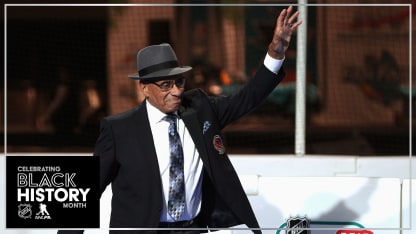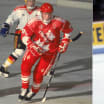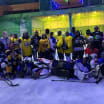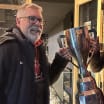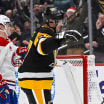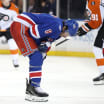To me, though, Black History Month isn't just in February. To me, it's every month. It's year-round.
That's the message I want to impart.
I've had the opportunity to meet a lot of the black players and players of color in the NHL, and the first thing they say to me is, "Mr. O'Ree, I can't imagine what you had to go through to make it possible for players like me to play in the League." And, yeah, it was hard. Besides being black and being blind in one eye, I was faced with four other things: racism, prejudice, bigotry and ignorance. There wasn't a game that went by that I didn't hear racial remarks and racial slurs. Not only from players on the opposition, but fans in the stands. But it didn't bother me, thanks to my older brother, Richard. He said, 'Willie, names will never hurt you unless you let them.' He said, 'If people can't accept you for the individual that you are, that's their problem, not yours.' He said, 'Don't let that have an effect on what you do and what you want to become.'
I obviously remember the quote from Dr. Martin Luther King Jr.: "I have a dream that my four little children will one day live in a nation where they will not be judged by the color of their skin but by the content of their character."
There's so much truth in that. Basically, I think that's the way to live. That's the way to think. You're still going to be faced with a lot of these racist and prejudiced people, and I just can't understand why they can't look at a person, just judge them for the individual that they are, look beyond the color of their skin. It's going to take a long while for things like that to end. It's not going to end overnight. It would be nice if it did, but it's not.
To the kids who have faced that, I want to say you have to keep doing what you're doing. And just stay focused on what you want to do. These remarks that are directed toward the players -- I just can't understand these people because they're either racist or they're ignorant. I don't think any educated person would make comments like that.
I've had racial remarks directed toward me within the last three weeks. People I've never known, never met, in restaurants, gas stations, just out. Because they look at me as a black person and they just can't see the forest for the trees. But I've always learned from my parents to respect other people.
